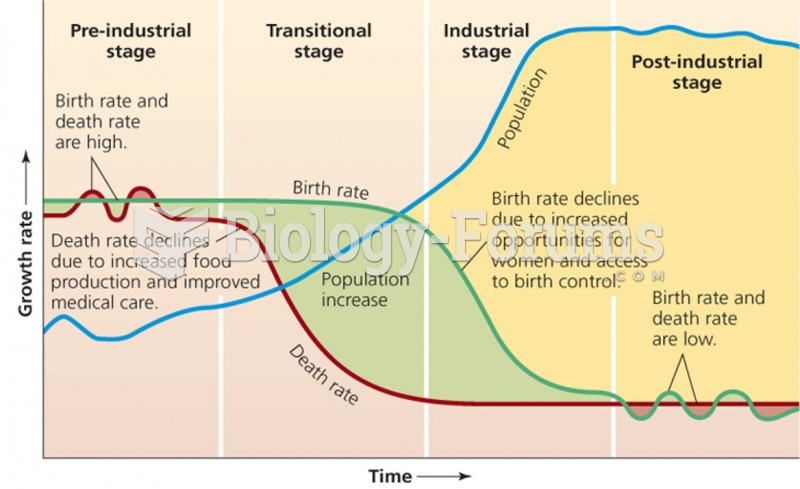|
|
|
People with high total cholesterol have about two times the risk for heart disease as people with ideal levels.
More than 34,000 trademarked medication names and more than 10,000 generic medication names are in use in the United States.
The horizontal fraction bar was introduced by the Arabs.
A cataract is a clouding of the eyes' natural lens. As we age, some clouding of the lens may occur. The first sign of a cataract is usually blurry vision. Although glasses and other visual aids may at first help a person with cataracts, surgery may become inevitable. Cataract surgery is very successful in restoring vision, and it is the most frequently performed surgery in the United States.
Thyroid conditions cause a higher risk of fibromyalgia and chronic fatigue syndrome.







